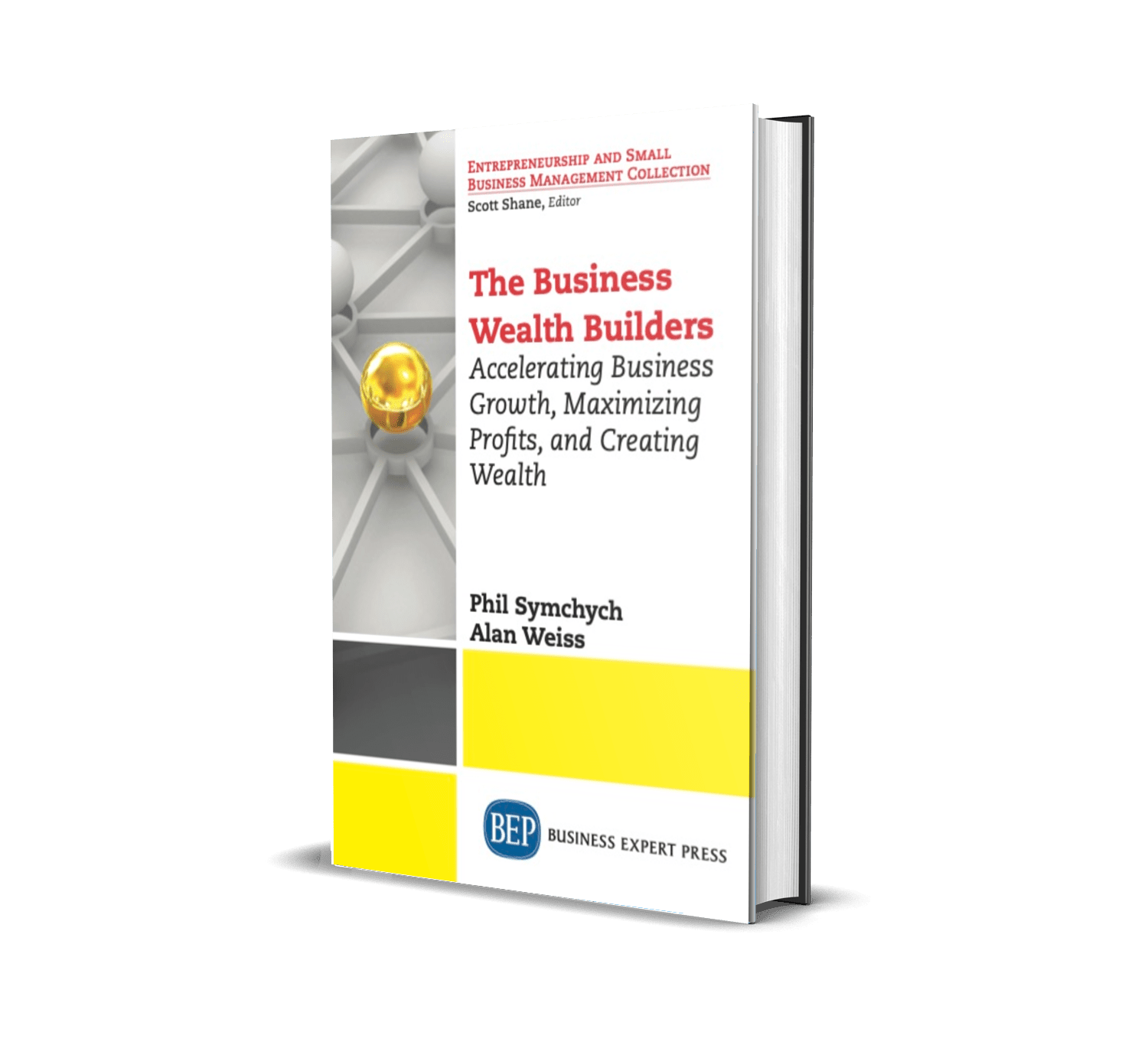From The Vault
“Minimizing taxes prevents business growth and hurts building business wealth.”
~ Phil Symchych
This article is the first in a short series on how to increase profit in your business. But first, there is one major problem we need to address.
Hear ye, hear ye! The bankers have spoken.
According to every banker that I’ve ever met or spoken to in 30 years, yes, every single one, there is one common weakness that hurts businesses in all industries. It prevents businesses from optimizing their financing for growth. It hurts their working capital. It holds the business back.
The number one mistake businesses make is minimizing taxes.
I blame the accountants (and I am one). Accountants are trained to minimize taxes, not to grow businesses. If you and your accountant are focused on minimizing taxes instead of growing your business, your business will always stay smaller than your potential for several reasons. Your business wealth will be much lower than possible with a smart tax strategy that puts growth first.
Stop Minimizing Taxes
If you’re not paying taxes, then you don’t have any profits, or you are creating unnecessary expenses, and those are bad things in any business. Minimizing taxes actually hurts your ability to grow and reduces your business wealth.
That’s because bankers will lend you money against your retained earnings (or equity) on your balance sheet. When you minimize profit on your income statement, there’s no profit or earnings left to be retained, and you end up with a weak balance sheet and an under-capitalized business.
Show me the numbers!
For every $100,000 of profit, let’s say you pay 25% corporate tax, or $25,000. If your business has a year-end profit of $100,000 (feel free to add a zero) and you and your accountant create a management bonus expense of $100,000, then your profit is zero and your tax is zero. And you’ve drained your business of $100,000 of cash by paying the bonus, which is taxable to you personally anyways. Sheesh!
What if we left the profit of $100,000 on the books and paid the taxes of $25,000? First, we’d have $75,000 of cash to support working capital.
Next, we’d have $75,000 of profit moving from the income statement to the balance sheet into retained earnings. Most banks will lend two to one on a debt-to-equity ratio, meaning they will lend your business two times the $75,000 for total funding of $150,000.
So, you’ve got your $75,000 cash and the banks $150,000 of financing, totaling $225,000.
What if you invest all $225,000 into a new product or service that you can turn over (meaning sell it) four times in the year, generating $900,000 of new revenue?
Assuming your gross margin percentage is 40%, that’s $360,000 of new profit. After 25% tax, that’s $270,000 of after-tax profit.
What’s the ROI of paying tax?
You paid $25,000 of tax. Then, you generated an additional $270,000 of after-tax profit. That’s an ROI of 1,080%.
“Paying tax, retaining profits, and leveraging wisely is one of the best investments you can make in your business.”
Not to mention, the valuation of your company, assuming an earnings multiple of five times, increases by 5 X $270,000 = $1,350,000.
Yep, paying $25,000 in taxes can help you increase the value of your company by more than a million bucks!!
Your business became 1.35 million dollars more valuable because you paid $25,000 in tax, left the $75,000 in your business, leveraged it, and invested to generate more revenue and profit.
Now, let’s add the profit improvement of $270,000 to the valuation lift of $1,350,000 for a total benefit of $1,620,000 and an ROI of 6,480%. What do you think of that?
(Note to the financial experts: yes, the valuation would be higher if we used EBITDA of $360,000, and yes, I ignored the interest cost in the above example.)
The moral of the story: pay tax, build your balance sheet, leverage wisely, invest in growth.
This is how small businesses grow to become profitable and valuable mid-market companies: sound business growth strategies and financial management.
Want a profit maximization growth strategy?
Let’s assess your profit and growth potential. If you want a profit maximization strategy that will increase your profits and build your business wealth, give me a call.
Full speed ahead!
Thanks for reading.
Phil Symchych is The Business Wealth Builder®. He specializes in helping companies to improve financial performance. He advises on growth, leadership, financing, and succession planning to create and protect business wealth for shareholders. He works with CEOs, executives, business owners, boards, and SME advisors globally.

